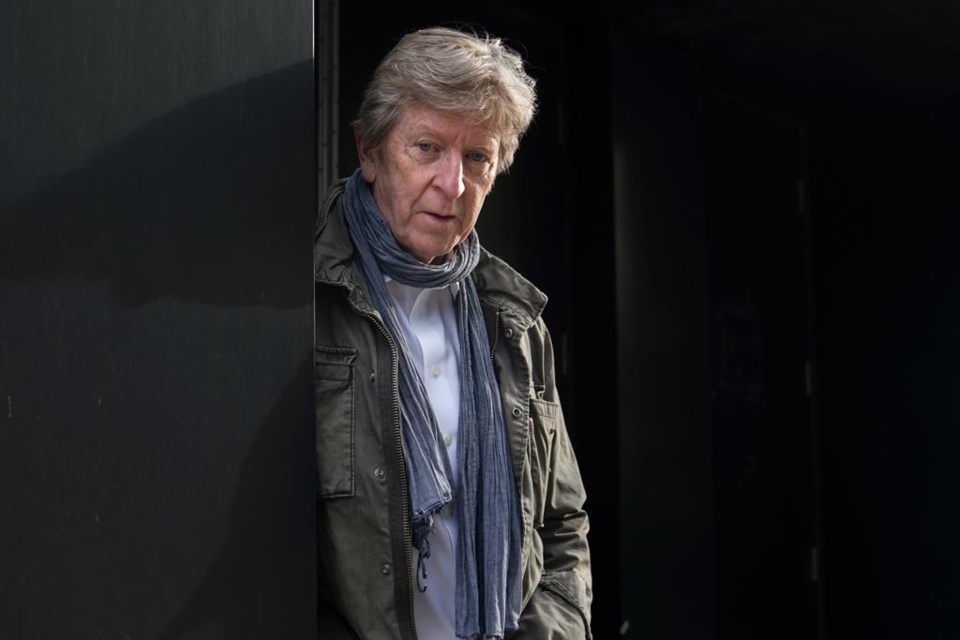TORONTO — There are three narratives that shape our perception of war, actor R.H. Thomson writes in his family memoir. There are the warmongers' stories before fighting breaks out, the chaotic battlefield dispatches and the mythologizing that follows.
He noticed the pattern both while combing through his family's military history, laid out in "By the Ghost Light: Wars, Memories and Families," published by Penguin Random House Canada, but also while working on his ongoing project The World Remembers. That ongoing effort seeks to catalogue and display the names of all nine million who died fighting in the First World War — not just those from certain countries or alliances.
"It's a toxic formula," he said. "We're in a perpetual war cycle."
Thomson, who is perhaps best known for roles in "Road to Avonlea" and "Anne with an E," can see it happening now in how we talk about both Russia-Ukraine and Israel-Hamas wars.
As for Russia's invasion of Ukraine, he said the current narrative is simple: "We want to know that the Ukrainians are going to win. We need to know that. And so we're imposing that on the story of Russia in Ukraine."
As for the conflict between Israel and Hamas, the wartime narrative is less clear cut.
"What stories do you tell in there? Both sides are telling us we can only tell one story," he said. "There are some groups saying, 'No, you've got to tell both stories.' But they get attacked for not joining one side or the other."
It was the opportunity to write about the ways in which people think about war that attracted him to the idea of a book based on his great-uncles' letters home during the First World War.
"I have read so many books of so many people writing about their families in World War I with letters. There's a lot of them out there, and I don't find them necessarily compelling," Thomson said. "I understand why people write them. I understand they want the family story maintained."
In his case, the family story involves eight great-uncles who fought in that war. Of the five on his father's side, two died in battle and two more died in the following years as a result of lung damage from poison gas. None of the three on his mother's side made it to Armistice.
He first told that story publicly in "The Lost Boys," a play he wrote based on the letters his great-uncles on his father's side wrote home. "By the Ghost Light" includes some of those letters, illustrating the human cost of war.
It's an incomplete picture, Thomson notes in the book, as none of the letters that family members sent east remain, but he fills in some of the gaps with broader observations about how war is discussed contemporaneously, and how it is remembered.
More than 650,000 Canadians and Newfoundlanders served in the First World War and 66,000 of them died, while upwards of 170,000 were wounded in the fighting.
Thomson recounts the efforts he went to in his bid to find and display the names of the soldiers who died in the First World War, learning that in many countries, those names were simply lost.
The First World War was not a pillar of the stories some nations tell about themselves, as it was in Canada and Great Britain.
Even the United States hadn't compiled a list of the 116,000 Americans who died, he said.
"I'm aghast that a large nation that respects its military as much as the United States would not have bothered to assemble a list of the men who died for them," he said.
He ended up receiving 38 spreadsheets from the Americans with names in them, which included a number of duplicates. Thomson said The World Remembers did the work of cleaning up those spreadsheets.
As of now, the project -- which is online and has been displayed at the National War Museum in Ottawa -- has about four million names from about 20 nations from all sides of the war, reframing history to remove the boundaries between "the victor and the vanquished," he wrote in the book.
"Yet even now, more than a century after the fighting stopped and with no one still alive who had a first-hand connection to the war, that frame still retains its emotional steel," he wrote.
But in separating people that way, he said, we erase their humanity.
"We love them when they go over and fight for us," he said. "And we don't really care to think about them when they come home."
This report by The Canadian Press was first published Nov. 3, 2023.
Nicole Thompson, The Canadian Press



